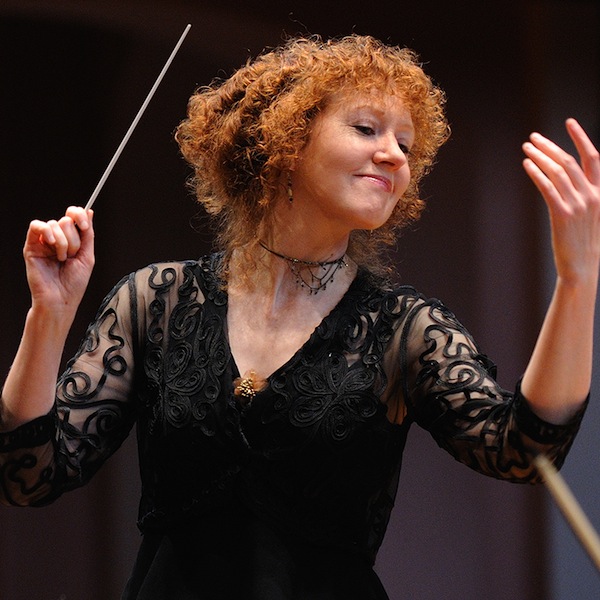Apollo’s Fire makes a blazing Chicago debut at Mandel Hall

At long last, Apollo’s Fire has descended upon Chicago. On Friday night, the popular Cleveland-based early music ensemble made their Chicago debut at Mandel Hall to open the University of Chicago Presents series.
The program’s theme was Gottfried Zimmermann’s coffeehouse, the Leipzig institution whose orchestra—the original Collegium Musicum—was founded by Telemann and later led by J.S. Bach. This theme was implemented by playing the sort of fare that Telemann and Bach might have served up during their coffeehouse tenures.
Led from the harpsichord by music director Jeannette Sorrell, the orchestra maintained a consistent playing style with sharply pinpointed rhythms and a highly interventionist approach to tempo and dynamic changes. Not for them period style as paleontology, reanimating things just as they were. This was period style as a frame through which to paint new vistas.
Nearly every bar teemed with ideas. And this keenness to be creative was the wellspring of their best and worst moments. For the various pieces required (or bore) such proliferate point-making to different degrees.
The opening piece, Telemann’s Don Quixote Suite, was an unqualified success. Telemann’s modern reputation suffers from his grave sin of not being Bach. But this piece exhibits a whimsical streak—a pictorial vividness in rendering the scenes from Cervantes—not in Bach’s vocabulary.
The Technicolor phrasing Sorrell drew from her players only increased this vividness. Their expertly judged timing was evident in the way Don Quixote’s drawn-out sighs for Dulcinea were answered by rapid scampering figures, and in the leaping up-bows that depict Sancho Panza being tossed in a blanket.
Their approach was less consistently successful in the Brandenburg Concertos No. 4 and 5, which formed the middle of the program. In the opening of No. 4, flutists Francis Colpron & Kathie Stewart dragged behind, and Stewart was a listless, barely audible solo presence in the opening of No. 5. The basic premise of their performance of the middle movement of No. 4 was particularly odd: the sighing figures were played legato by the orchestra, but with artificially clipped phrasing by the soloists. And while violin soloist Olivier Brault’s numerous ritardandos and agogics were doubtless meant to reveal the implied counterpoint within his part, they felt more abrupt than astute.
But in other movements, Apollo Fire’s fresh perspective was most welcome. Their quirky phrasing of the subject of No. 4’s finale—stressing both opening notes rather than just the second one, as is customary—was a nice twist. As was the contrast they created between the mellow opening of the movement and the stormier minor-key central section, with soloists and orchestra alike contributing energetically.
Sorrell’s interpretation of the famous harpsichord solo in the first movement of No. 5 was also an intriguing surprise. The harpsichord felt less like an upstart upstaging his fellow soloists and more like an intrepid youth exploring a new role.
The last two pieces showed their vigorous approach at its best. The Chaconne from Handel’s Terpischore was true to its muse’s name. It swaggered and swung, with such weight placed on the syncopated second beats that one sometimes wondered if the downbeats were shifting.
The orchestra put their music stands away for the final tour de force: Sorrell’s own souped-up arrangement of Vivaldi’s La Folia—not a simple redistribution of parts, but a bustling romp, true to the dance’s Iberian origins. From their hair-trigger dynamic shifts in the opening phrase to the whirlwind final bars, this was as exciting as Baroque music gets.
The appreciative audience coaxed them back for a different sort of “old time” music: a bit of Appalachia. Their encore was their version of “Glory in the Meeting House” from their album Sugarloaf Mountain. It was a barnstorming conclusion to an arresting musical evening.
The University of Chicago Presents series continues with the Danish String Quartet performing Shostakovich’s String Quartet No. 15 and Schubert’s String Quintet 7:30 p.m. October 28 in Mandel Hall. chicagopresents.
Posted in Performances




